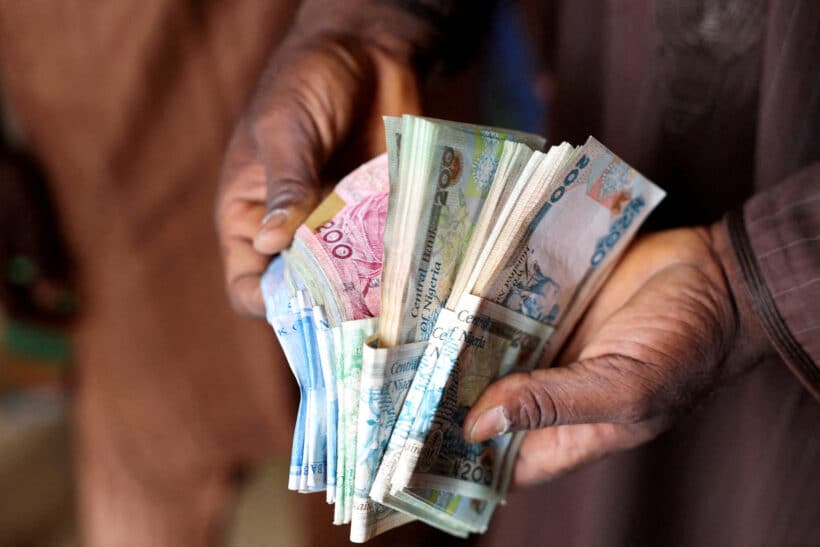
LUSAKA, July 11 (Reuters) – Zambia’s kwacha and Kenya’s shilling could fall against the dollar in the next week to Thursday, while Uganda’s shilling, Nigeria’s naira and Ghana’s cedi are seen broadly stable, traders said.
KENYA
Kenya’s shilling is expected to slip on increased demand for dollars from oil-retailing companies at a time that some market participants are holding off from big bets because of uncertainty over the budget and an International Monetary Fund (IMF) disbursement.
Commercial banks quoted the shilling at 128.75/129.75 per dollar, compared with last Thursday’s closing rate of 127.75/128.75.
In mid-June Kenya reached a staff-level agreement with IMF, paving the way for a disbursement of about $976 million once board approval is granted.
But since the staff agreement was reached Kenyan President William Ruto withdrew planned tax hikes in response to nationwide protests, a move analysts say could result in the country missing key IMF programme targets.
“There’s an element of, you know, wait and see, we still need to hear from the IMF okay and even from Treasury in terms of what is the final budget going to look like,” one trader said.
NIGERIA
Nigeria’s naira is seen little changed on the official market and in street trading.
LSEG data showed the naira at 1,534 to the dollar on the official market on Thursday, compared with around 1,507 a week ago. The unit was quoted at 1,558 on the parallel market on Thursday.
Central bank governor Olayemi Cardoso said at a conference on Thursday that the bank’s clearer communication had helped reduce market volatility.
“A lot of the wide swings that we saw are gradually beginning to smoothen out as a result of a better understanding of the market, greater transparency that is taking place and the comfort that those using the market see in it,” he said.
GHANA
Ghana’s cedi is expected to hold its ground due to improved liquidity on the interbank market.
LSEG data showed the cedi trading at 15.35 to the dollar on Thursday, compared with 15.30 at last Thursday’s close.
“The cedi has seen continued stability this week amid increased volume of dollar supply even with reduced intervention from the central bank. We expect the stability to remain in the coming week,” said Chris Nettey, head of trading at Stanbic Bank Ghana.
“(The dollar/cedi pair) has been largely directionless in recent sessions, with very little trading activity between market makers. Improved flows from corporates have also contributed to tighter bid-offer spreads. Up ahead, we expect much of the same,” said Sedem Dornoo, senior trader at Absa Bank Ghana.
ZAMBIA
Zambia’s kwacha is expected to remain under pressure due to strong demand for hard currency.
On Thursday the currency of Africa’s second-largest copper producer was trading at 25.35 per dollar from 24.30 a week ago.
“In the foreseeable future, losses are anticipated for the kwacha,” Access Bank said in a note.
UGANDA
Uganda’s shilling is seen trading around its current levels as hard-currency demand is curtailed by mid-month tax payments due in the local currency.
Commercial banks quoted the shilling at 3,695/3,705 to the dollar, compared to last Thursday’s close of 3,692/3,702.
“Demand will be tepid as we have mid-month taxes around the corner,” one trader said, adding the shilling would likely trade in a range of 3,680-3,710 to the U.S. currency in the coming week.
(Reporting by Chris Mfula, George Obulutsa, Elias Biryabarema, Christian Akorlie and Elisha Bala-GbogboEditing by Alexander Winning)

